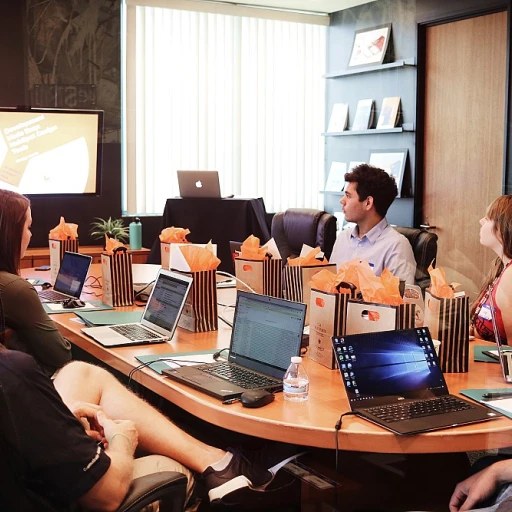
Understanding the Role of a PC12 Pilot
The Diverse Duties of a PC12 Pilot
Aspiring to become a PC12 Pilot entails a distinctive blend of responsibilities that go beyond simply flying an aircraft. With a role extending across various domains, each flight becomes more than just a mechanical journey from point A to point B. PC12 Pilots are not just captains of their aircraft; they perform duties akin to flight officers, managing both the technical and operational facets of each mission. One of their core responsibilities is navigating the intricacies of the Pilatus PC-12, an aircraft renowned for its versatility and reliability. This requires pilots to be well-versed in significant technical knowledge and operational efficiency.Daily Operations and Strategic Responsibilities
Indeed, the role of a PC12 Pilot is stratified, demanding a strategic approach to both daily operations and overarching responsibilities. A day-to-day operation might include:- Conducting pre-flight inspections to ensure aircraft safety.
- Coordinating with the chief pilot to address flight logistics.
- Communicating with air traffic control to secure and maintain clearances.
- Ensuring the adherence to both domestic and international aviation regulations.
The Demand for PC12 Pilots in the Aviation Industry
The Growing Need for PC12 Pilots Across the Globe
The demand for PC12 pilots is on the rise within the aviation industry, with various factors at play. These single-engine aircraft require skilled captains and first officers to navigate commercial and private air travel efficiently. Several regions, particularly in Canada, California, and Prague, are experiencing a spike in aviation jobs necessitating a skilled workforce. Pilatus aircraft are known for their versatility, and hence, the need for proficient pilots who can undertake different flight missions is critical. The increasing reliance on air travel, coupled with growing city connections and expanding air networks, contribute significantly to the demand for pilots specialized in handling PC12 planes. Aviation-related job searches often spotlight opportunities for flight instructors, chief pilots, and other essential roles in cities with booming aviation activities. Additionally, job seekers with comprehensive training and credentials are more likely to secure stable positions in the industry, owing to the complex nature of piloting aircraft like the PC12. For more insights into job opportunities and relevant roles in the aviation industry, particularly relating to jobs and related training, understanding the role of specialized personnel is essential. Explore further to gain comprehensive insights into the role of various aviation roles at understanding the role of a manufacturing execution system engineer.Challenges in Hiring Tech for Aviation Roles
Challenges in Implementing Technology for Aviation Roles
In the rapidly evolving aviation industry, integrating hiring technology to effectively recruit PC12 pilots presents distinct challenges. The aviation sector must respond to a growing demand for skilled professionals, but finding the right candidates with the essential skills and qualifications can be complicated. This is particularly true for specialized roles such as the Pilatus PC12 captain and flight officer positions, which require not only technical prowess but also experience in specific aircraft operations. One of the primary hurdles is ensuring that technology used in recruitment processes aligns with the unique requirements of aviation jobs. Platforms facilitating job searches might not accurately capture the intricacies of the pilot job description or the specific qualifications necessary for roles, such as the chief pilot or flight instructor. This is where understanding the nuances of the aviation industry becomes vital. Additionally, training and retention of pilots pose a challenge. Prospective pilots, whether based in Canada, California, Prague, or any other city, must undergo rigorous training to prepare for these demanding roles. Incorporating technology that effectively evaluates training outcomes and officer capabilities remains crucial. Moreover, the integration of advanced analytics and AI in recruitment needs to be handled with care. While these technologies offer great promise in identifying capable candidates, they must be utilized while maintaining transparency and a fair recruitment process. Integrating ethical AI practices ensures that all candidates have an equal opportunity to compete for aviation roles. With the ongoing changes in aviation technology and the increasingly technological workplace, the industry will need to continuously adapt its hiring practices. For more insights into how different sectors are tackling similar issues, particularly with initiatives like ESG in tech hiring, you can explore our take on sustainable hiring practices. Addressing these challenges requires collaboration between technology providers, aviation employers, and a keen understanding of the sector's demands to effectively recruit, train, and retain future pilots, ensuring that they are equipped to meet the safety and operational demands of modern aviation.Essential Skills and Qualifications for PC12 Pilots
Building a Foundation for Success in Pilatus Aviation
To thrive as a PC12 pilot, embracing a set of essential skills and qualifications is key. These not only ensure the safety of every flight but also elevate one’s standing within the aviation industry. Here is what aspiring pilots must focus on:
- Comprehensive Training: Mastering the technicalities of Pilatus aircraft begins with thorough training programs. As a robust foundation is essential, many seek formal education combined with hands-on flight simulation.
- Certification and Licenses: For those eyeing a career in aviation, possessing a commercial pilot license or an airline transport pilot certificate is non-negotiable. This solidifies one’s commitment and competence in the evolving field.
- Experience Matters: Having logged significant flight time aids in becoming a first officer or captain. Experience is crucial in commanding complex scenarios efficiently and safely.
- Soft Skills: It’s not just about technical prowess. Communication, problem-solving, and teamwork define a pilot capable of collaborating with a chief pilot or flight instructor in any city, from California to Prague.
- Adhering to Regulations: Familiarity with and adherence to aviation regulations, especially when flying internationally or within specific regions like Canada, is essential to ensure compliance and safety on the job.
The landscape of pilot jobs is constantly shaped by technological advancements. Keeping up-to-date with innovations enhances one’s ability to operate aircraft efficiently and safely, setting the stage for a flourishing career in roles like chief pilot or flight officer.
The Impact of Technology on Pilot Recruitment
The Integration of Technology in Streamlining Pilot Recruitment
The pilot recruitment process for PC12 roles has evolved significantly with advances in technology. As aviation industries in cities like Prague, California, and across Canada endeavor to attract top talent, the use of technology plays a pivotal role in enhancing hiring efficiency and precision. Technology enables aviation companies to conduct more effective assessments of their candidates. This ranges from simulating flight conditions for evaluating pilot reactions and decisions, to analyzing the proficiency of candidates as they advance through the stages of training. The ability for hiring managers to see how potential pilots handle rigorous scenarios before they officially assume the roles of captain or chief pilot becomes a game changer. Moreover, flight training programs have been revolutionized through technology, offering virtual reality (VR) solutions and comprehensive digital learning environments. These tools not only aid in developing critical skills necessary for flight instructors and officers in air jobs but also ensure that pilots are abreast with the latest aviation standards and practices. Consequently, companies can better prepare their candidates for real-time applications in complex airspace. Additionally, technology aids significantly in the job search process, both for the applicants and the recruiters. Through enhanced job platforms, potential pilots can seamlessly explore various pilot job opportunities in PC12 aircraft operations. Whether you are a seasoned pilot looking to relocate to a vibrant city like California or an aspiring aviation enthusiast seeking a chief pilot role in Canada, technology provides an intuitive way to connect. Furthermore, modern recruitment systems offer sophisticated tools for parsing resumes and assessing candidate profiles. These platforms are crucial in identifying candidates who meet the stringent qualifications required for flying Pilatus aircraft—saving valuable time during the hiring process. The impact of tech extends beyond mere recruitment; it fosters continuous development. Chief pilots and instructors leverage digital tools to keep their skills sharpened and compliant with evolving aviation standards. As the aviation industry continues to witness rapid technological advancements, those involved in the hiring of PC12 pilots must adapt to stay competitive. Recruitment processes are enriched with data-driven insights that ensure the right pilots are chosen for the right job, benefitting the broader aviation community.Future Trends in PC12 Pilot Employment
Emerging Trends in the PC12 Pilot Job Market
The landscape of PC12 pilot employment is evolving, influenced by technological advancements and shifting industry demands. As the aviation sector continues to grow, understanding these trends is crucial for aspiring pilots and industry professionals alike.
One significant trend is the increasing demand for PC12 pilots in diverse locations, from bustling cities like California to international hubs such as Prague and Canada. This global demand is driven by the versatility of the Pilatus PC12 aircraft, which is favored for its efficiency and adaptability in various flight conditions.
Moreover, the role of technology in pilot recruitment is becoming more pronounced. Digital platforms are streamlining the job search process, making it easier for pilots to connect with potential employers. This shift is particularly beneficial for those seeking pilot jobs in niche markets or specific regions.
Another trend is the emphasis on specialized training and qualifications. As the aviation industry becomes more competitive, having advanced skills and certifications can set candidates apart. This includes roles such as flight instructor or chief pilot, where leadership and expertise are highly valued.
Additionally, the integration of technology in aircraft operations is reshaping the skill set required for PC12 pilots. Familiarity with advanced avionics and digital systems is increasingly important, as these tools enhance safety and efficiency in the air.
Looking ahead, the future of PC12 pilot employment will likely be influenced by continued technological innovation and the global expansion of the aviation industry. Staying informed about these trends will be essential for those looking to advance their careers as captains or officers in this dynamic field.













